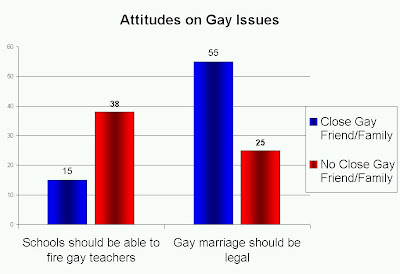Posted by Jay Livingston
I love the New York Post. I don’t actually read it; but I see the front page every day. Regardless of the actual content, the message of the subtext could often be summarized in the following headline:
THIS IS NOT A REAL NEWSPAPER.
We’re in it for kicks.
We’re in it for kicks.
Here’s yesterdays front page.

The story was that Israel was trying to boost its sagging tourism. Apparently the Israelis thought that potential tourists —younger male tourists — were staying away not because of questions of politics and safety but because the Israel “brand” lacked sex. So they made a deal with Maxim, the lad mag, to sponsor a party honoring Israeli women soldiers. They used this photo of Miss Israel 2004 on the invitation.
The Post usually supports Israel, but when it comes to politics on one side and a bikini and a smutty pun on the other, it’s no contest. (“Piece” seems somewhat dated to my ear, but I don’t spend much time listening to informal talk among the target demographic. And how many Post readers will get the pun on brouhaha?)
There’s a culture and class connection here that I can’t quite put my finger on. It’s a combination of patriotism, prurience, and puritanism, and the Post, like much of the rest of Murdoch’s media empire, thrives on it. Most of Murdoch’s other outlets take themselves more seriously, though when the boys at Fox News slapped on that “Fair and Balanced” slogan, they surely must have had their tongue deep in their cheek and all fingers crossed.
The Murdoch media love sex, especially when it allows the pointing of fingers at other people’s sexuality. I’m sure they’re kicking themselves for failing to come up with “To Catch a Predator,” NBC’s champion in the “moral righteousness cum voyeurism” category, while Fox and the others must content themselves with Britney, Paris, and the rest. (For an interesting take on “Predator,” see Corey Colyer’s recent blog entry. ) Typically with these publications, you get babes in bikinis on one page and on the next a sex scandal news item that clearly shows the border between the good guys’ cheerful sexuality and that bad guys’ evil sexuality.
The simplistic moral approach also applies to politics. It’s us against them, and we’re the good guys. Again, the Post, with its lack of pretension to being a real newspaper, provides the best example. Here it is in March 2003, when in the U.N., France and Germany were opposing US resolutions authorizing the invasion of Iraq.

(In case you can’t see it in the photo, the weasel heads have been superimposed on the representatives from France and Germany.)
The Post covers politics the way it covers sports, with the Bush administration as the home team. The main difference is that the Post sports reporters try to get information besides what’s put out by the Yankee front office, and they will actually criticize the Yankee players and management when the team is not doing well. (Currently, the Yankees in MLB are sort of like the US in Iraq — spending a ton of money and not having a lot of victories to show for it, in fact just barely above having a losing record.)
For the New York Post, every day is a moral struggle. Every day, on various fronts, good confronts evil. The forces of selfless virtue, loyalty, common sense, and pride confront the forces of self-interest, danger, sneakiness, corruption, elitism, and immorality. The good guys don’t win every battle, but they can pat themselves on the back for trying. And whatever happens, they can usually find comfort in a picture of a beautiful woman who’s not wearing very much at all.




